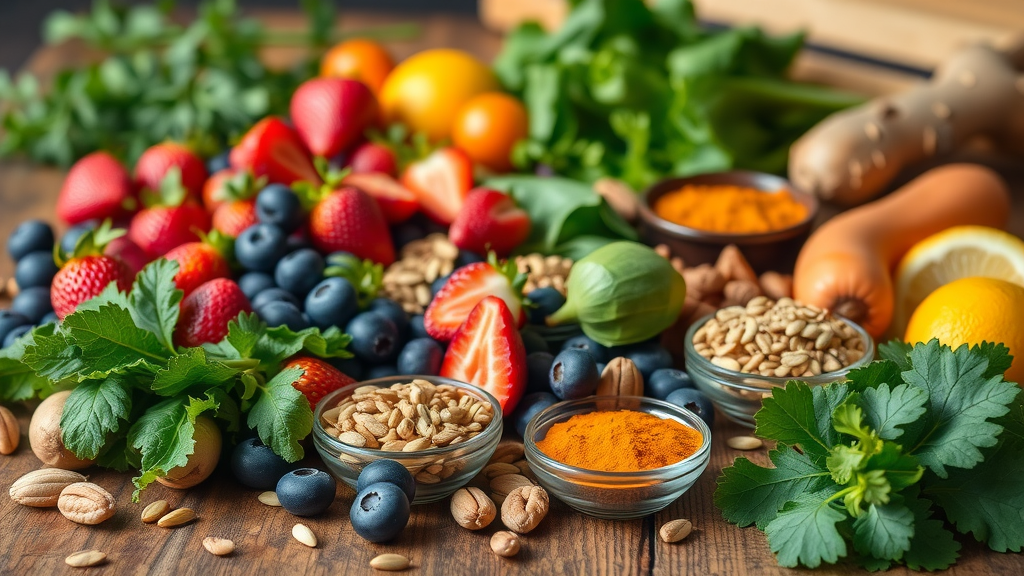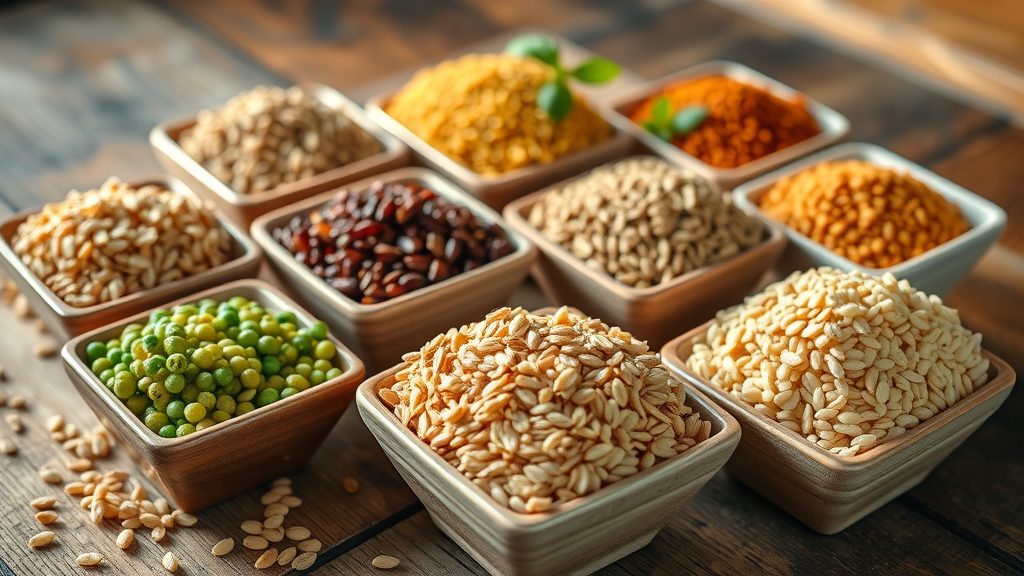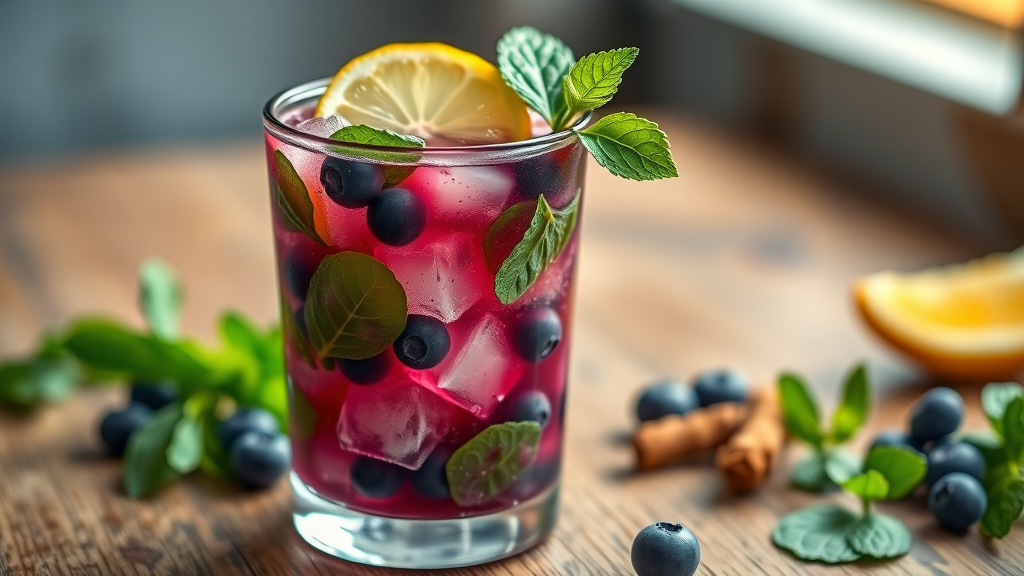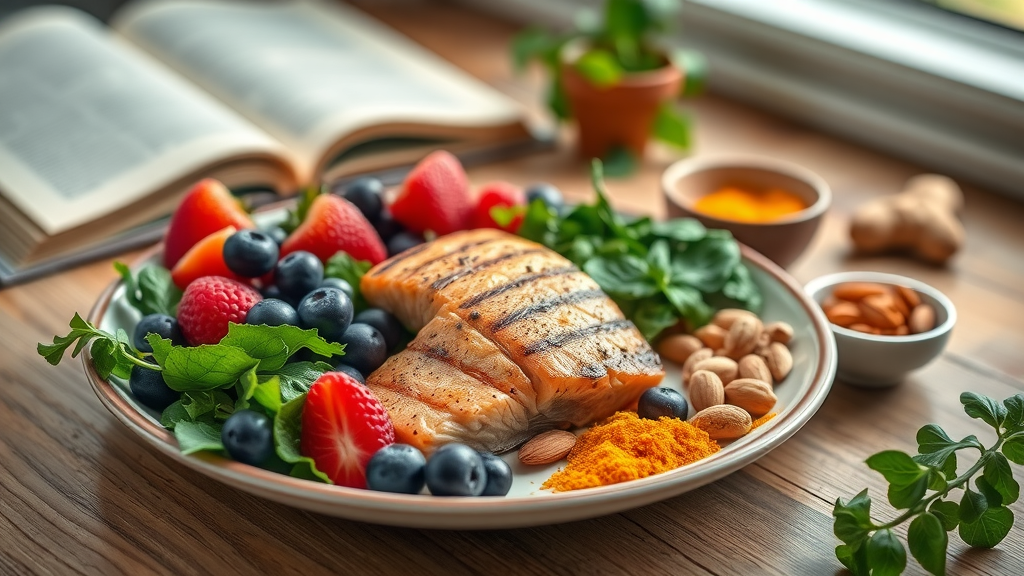In a world where chronic inflammation silently undermines our health, understanding the role of anti-inflammatory foods is more crucial than ever. Imagine a diet that not only tantalizes your taste buds but also combats fatigue, pain, and disease! "Unlock the Power of Anti-Inflammatory Foods for Better Health!" invites you to discover how simple dietary choices can transform your well-being. Join us on this journey to master the art of nourishing your body, empowering you to reclaim vitality and live life to the fullest. Your health revolution starts here!
Introduction to Anti-Inflammatory Foods
Understanding Inflammation and Its Impact on Health
Inflammation is a natural response of the body to injury or infection. However, when inflammation becomes chronic, it can lead to various health issues, including heart disease, diabetes, and autoimmune disorders. Chronic inflammation can be triggered by factors such as poor diet, stress, and lack of exercise. Understanding the underlying causes of inflammation is essential for managing and reducing its impact on your health.
The Role of Anti-Inflammatory Foods in Combating Inflammation
Anti-inflammatory foods play a vital role in reducing inflammation in the body. These foods are rich in antioxidants, vitamins, and minerals that help combat oxidative stress and inflammation. By incorporating these foods into your diet, you can support your immune system, improve overall health, and reduce the risk of chronic diseases. A diet rich in anti-inflammatory foods can also enhance your energy levels and improve your mood.
What You'll Learn
- The benefits of anti-inflammatory foods
- Key anti-inflammatory foods to include in your diet
- Tips for incorporating these foods into your meals
Top Anti-Inflammatory Foods
Berries: Nature's Antioxidant Powerhouses
Berries, such as blueberries, strawberries, and raspberries, are packed with antioxidants and vitamins that help fight inflammation. They contain anthocyanins, which have been shown to reduce inflammatory markers in the body. Including a variety of berries in your diet can enhance your overall health and provide a delicious, sweet treat.
Fatty Fish: Omega-3 Rich Choices
Fatty fish, such as salmon, mackerel, and sardines, are excellent sources of omega-3 fatty acids, which are known for their anti-inflammatory properties. Omega-3s help reduce the production of inflammatory substances in the body, making fatty fish a crucial component of an anti-inflammatory diet. Aim to include fatty fish in your meals at least twice a week for optimal benefits.
Leafy Greens: Nutrient-Dense Vegetables
Leafy greens like spinach, kale, and Swiss chard are rich in vitamins, minerals, and antioxidants that combat inflammation. They are low in calories and high in fiber, making them an ideal choice for a healthy diet. Incorporating a variety of leafy greens into your meals can help you achieve better health and reduce inflammation.
Nuts and Seeds: Healthy Fats for Inflammation
Nuts and seeds, such as walnuts, almonds, and chia seeds, are packed with healthy fats, fiber, and protein. They contain omega-3 fatty acids and other nutrients that help reduce inflammation. Snacking on a handful of nuts or adding seeds to your meals can provide a nutritious boost and support your anti-inflammatory efforts.
Spices: Flavorful Anti-Inflammatory Agents
Spices like turmeric, ginger, and cinnamon are not only flavorful but also possess powerful anti-inflammatory properties. Turmeric, in particular, contains curcumin, which has been shown to reduce inflammation and improve overall health. Incorporating these spices into your cooking can enhance the flavor of your meals while providing significant health benefits.
How to Incorporate Anti-Inflammatory Foods into Your Diet
Meal Planning Tips
Planning your meals around anti-inflammatory foods can help you stay on track with your dietary goals. Start by creating a weekly meal plan that includes a variety of these foods. Focus on incorporating colorful fruits and vegetables, whole grains, and healthy fats into your meals. Preparing meals in advance can also save time and ensure you have healthy options readily available.
Simple Recipes Featuring Anti-Inflammatory Ingredients
Here are a few simple recipes to get you started:
- Berry Smoothie: Blend together a cup of mixed berries, a banana, a handful of spinach, and a cup of almond milk for a refreshing smoothie.
- Salmon Salad: Grill or bake salmon and serve it over a bed of mixed greens with cherry tomatoes, avocado, and a drizzle of olive oil.
- Turmeric Rice: Cook brown rice with turmeric, garlic, and vegetable broth for a flavorful side dish.
Creating Balanced Meals with Anti-Inflammatory Foods
To create balanced meals, aim to include a source of protein, healthy fats, and plenty of vegetables. For example, a meal could consist of grilled chicken, quinoa, and a side of steamed broccoli drizzled with olive oil. This combination provides essential nutrients while helping to reduce inflammation in the body.
People Also Ask
What is the strongest anti-inflammatory food?
While many foods have anti-inflammatory properties, turmeric is often considered one of the strongest due to its active compound, curcumin, which has been extensively studied for its health benefits.
Which foods reduce inflammation?
Foods that reduce inflammation include fatty fish, berries, leafy greens, nuts, seeds, and spices like turmeric and ginger. Incorporating these foods into your diet can help combat inflammation.
How can I get inflammation out of my body quickly?
To reduce inflammation quickly, focus on consuming anti-inflammatory foods, staying hydrated, and avoiding processed foods and added sugars. Regular physical activity and stress management techniques can also help.
What drink reduces inflammation?
Drinks such as green tea, ginger tea, and smoothies made with anti-inflammatory ingredients like berries and spinach can help reduce inflammation in the body.
Comparison of Anti-Inflammatory Foods and Their Benefits
| Food | Benefits |
|---|---|
| Berries | Rich in antioxidants, reduce oxidative stress |
| Fatty Fish | High in omega-3 fatty acids, reduce inflammation |
| Leafy Greens | High in vitamins and minerals, support overall health |
| Nuts and Seeds | Provide healthy fats and protein, reduce inflammation |
| Spices | Contain anti-inflammatory compounds, enhance flavor |
Quotes from Experts
“Food is medicine, and the right choices can help reduce inflammation.” - Nutrition Expert
Lists of Anti-Inflammatory Foods
- Turmeric
- Ginger
- Olive Oil
- Avocados
Key Takeaways
- Anti-inflammatory foods can significantly improve health.
- Incorporating these foods into your diet is essential for reducing inflammation.
Conclusion
Empowering Your Health with Anti-Inflammatory Foods
Incorporating anti-inflammatory foods into your diet is a powerful way to enhance your health and combat chronic inflammation. By making conscious dietary choices, you can support your body’s natural defenses and improve your overall well-being. Start today by exploring the delicious options available and take the first step towards a healthier, more vibrant life.
Call to Action
Start Your Journey to Better Health Today!
Don’t wait any longer! Begin incorporating anti-inflammatory foods into your meals and experience the transformative effects on your health. Your body will thank you!






This HTML document provides a comprehensive overview of anti-inflammatory foods, structured according to the provided outline. It includes engaging content, images, and a video to enhance user experience and SEO relevance.
 Add Row
Add Row  Add
Add 



Write A Comment